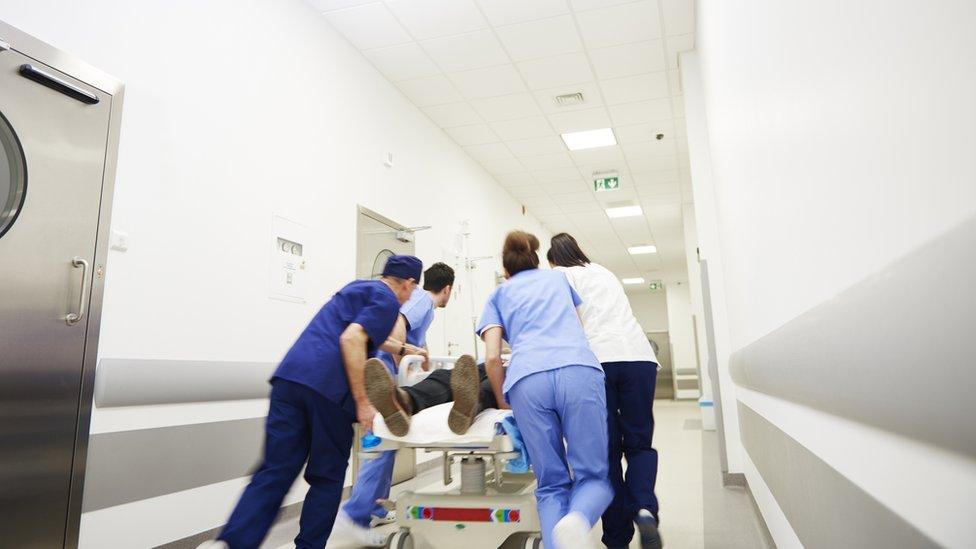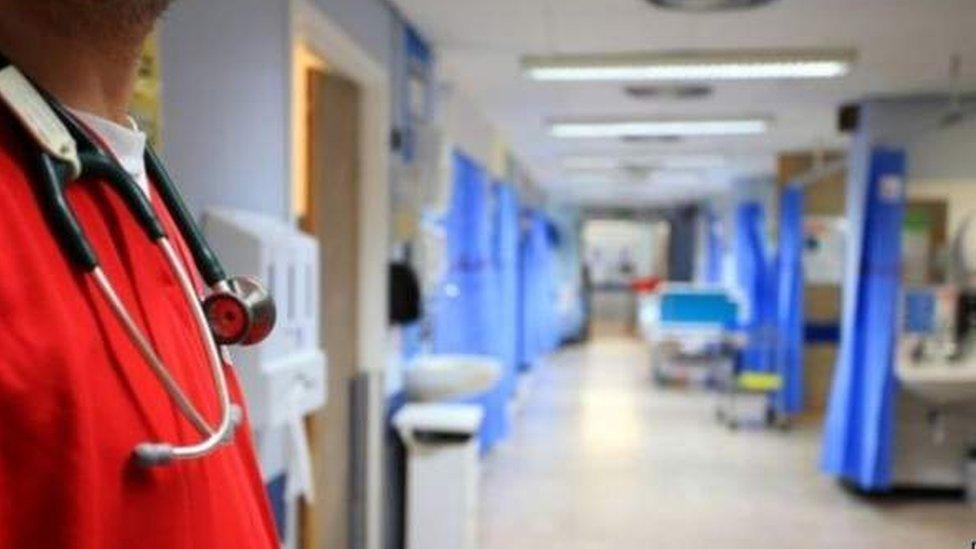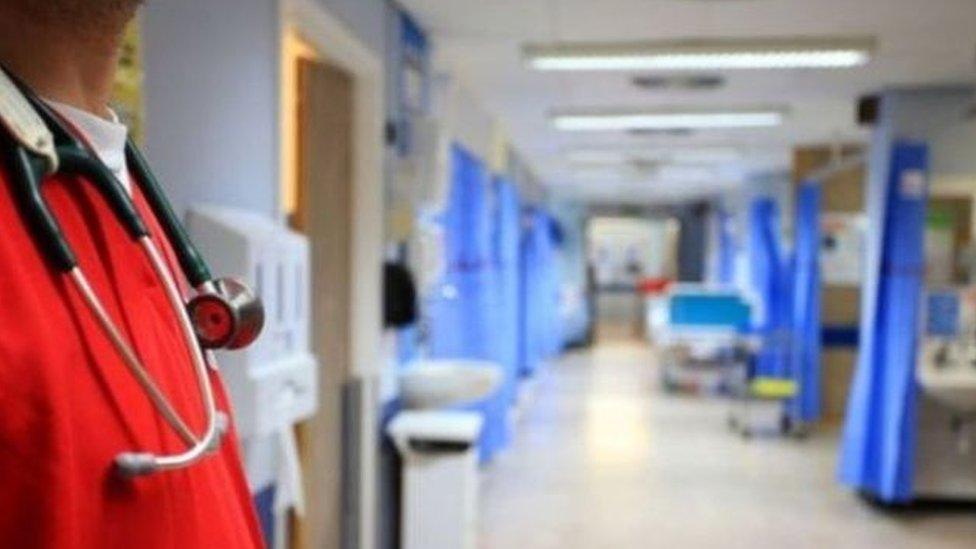NI waiting lists cause patients facing more complex surgery
- Published
- comments

Surgeons in Northern Ireland are having to undertake more complex surgery because patients are waiting so long for their operations.
Patients with advanced cancers are among those affected, a Royal College of Surgeons survey suggests.
Roughly one third of surgeons registered in Northern Ireland responded to the survey.
Other issues causing last-minute cancellations included a lack of hospital beds and operating theatres.
NI director of the Royal College of Surgeons Mark Taylor said members were feeling "frustrated".
"It is universally accepted that the waiting times in Northern Ireland are the worst in the UK," he said.
The increasing demand, reduced capacity and budgetary constraints have been highlighted as potential causes.
"In our survey of surgeons, frustration was expressed about a lack of hospital beds for elective surgery, operating theatre capacity and wider workforce shortages," Mr Taylor said.
According to the Royal College of Surgeons, at a meeting last week Health Minister Robin Swann agreed clinicians must have a central role in plans to eliminate the waiting list backlog and deliver long-term transformation reforms.
The Royal College of Surgeons survey ran for several weeks in November last year.
Waiting times figures published by the Department of Health show of the 90,514 patients waiting to be admitted to hospital for either day case or inpatient treatment in December 2019, almost a third are waiting more than a year for admission.
This represents an increase of 26% compared to December 2018.
By comparison, the latest figures for England indicate just 1,467 patients waited more than 52 weeks from referral to treatment.
On Thursday, Mr Swann described Northern Ireland's hospital waiting times as "quite simply appalling".
"The starting point is spelt out in New Decade New Approach - that no one waiting over a year at 30 September 2019 for outpatient or inpatient assessment/treatment will still be on a waiting list by March 2021," he said.
"This will require in the region of £50m as part of the 2020/21 health budget."
- Published22 November 2019

- Published15 May 2019

- Published23 March 2018
